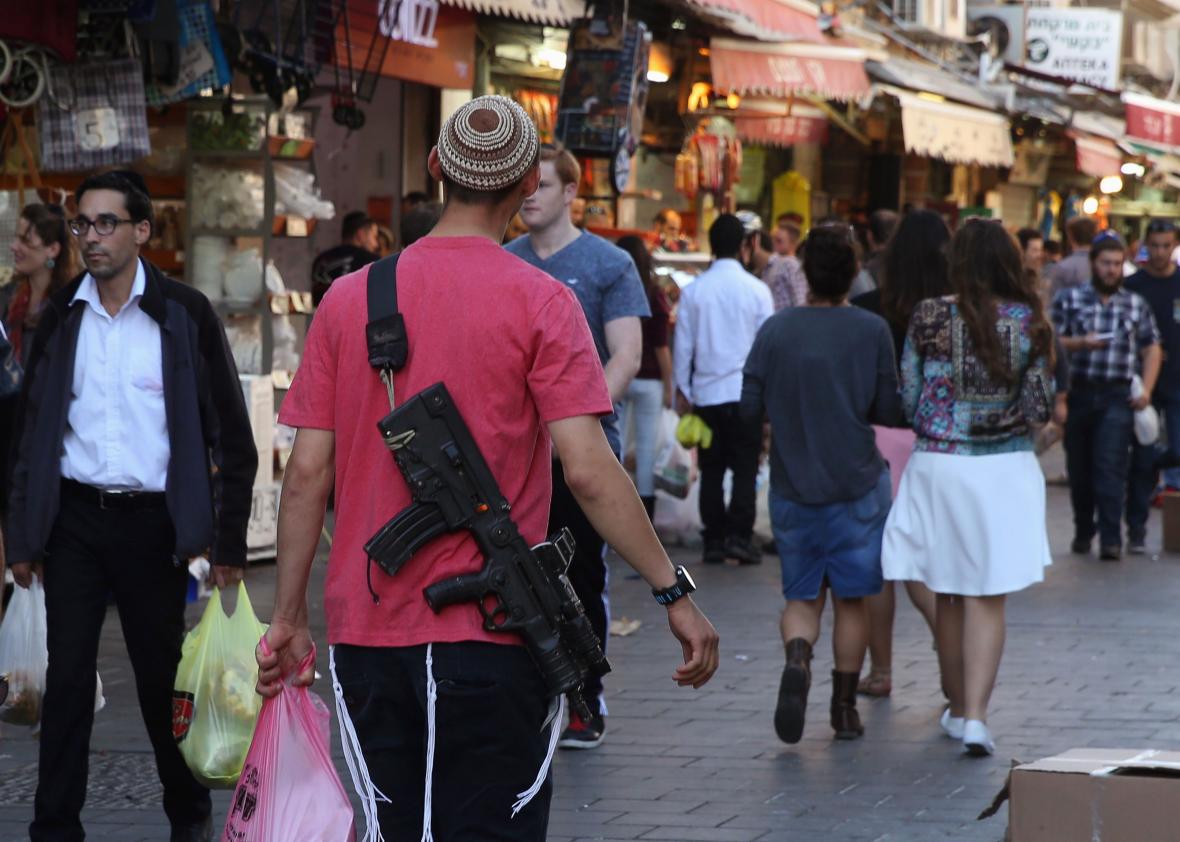In the wake of the recent wave of stabbing and ramming attacks by Palestinians against Israeli civilians, Israeli Prime Minister Benjamin Netanyahu held a meeting with top security officials on Tuesday to discusses possible responses, including loosening restrictions on gun licenses.
Public Security Minister Gilad Erdan says the government is considering loosening restrictions on owning firearms. The country’s deputy defense minister has actively encouraged citizens who are licensed to carry their guns, as has Jerusalem Mayor Nir Barkat, who was photographed with a modified Glock 40 slung over his shoulder while visiting a Palestinian neighborhood last week. The Washington Post reports that shooting ranges in Israel are doing brisk business.
Visitors to Israel are often struck by the sight of soldiers on leave carrying their weapons around town, and gun advocates in the United States sometimes misleadingly cite the country as a positive example of a place with a high gun ownership rate but few homicides. But the country’s gun laws for civilians are actually pretty restrictive, especially compared with ours. There is no right to bear arms in the Israeli constitution. Assault weapons are banned, and licenses are required for gun ownership and are typically only granted to security workers, hunters, or those with special business or personal security needs, which in Israel includes residents of West Bank settlements. As of 2012, Israel rejected 40 percent of firearms permit applicants, the highest rate in the Western world. A gun owner needs to be approved by an instructor to obtain a permit, which must be renewed every three years. Only about 3.5 percent of Israelis—half of whom work for security firms—own guns, compared with 32 percent in the United States.
But that may be changing in response to growing security concerns. After a terrorist attack last year, the government added Jerusalem and 41 other areas to the list of “high-risk” places, making it easier for residents to obtain firearms. Security firms were also permitted to allow their guards to take their weapons home.
The recent stabbing attacks and fears of a full-blown intifada may lead to a further loosening of the rules. While the anxiety is understandable, lowering the standards for who can carry a weapon and adding to the arsenal available to two populations of angry, terrified people seems like a recipe for disaster. As one retired Jerusalem detective told the Post, “You don’t need to throw gasoline on the fire. Guns are serious things. One split second of stupidity can cause a lot of damage.” The current level of tension in Israel presents abundant opportunity for those split seconds.
